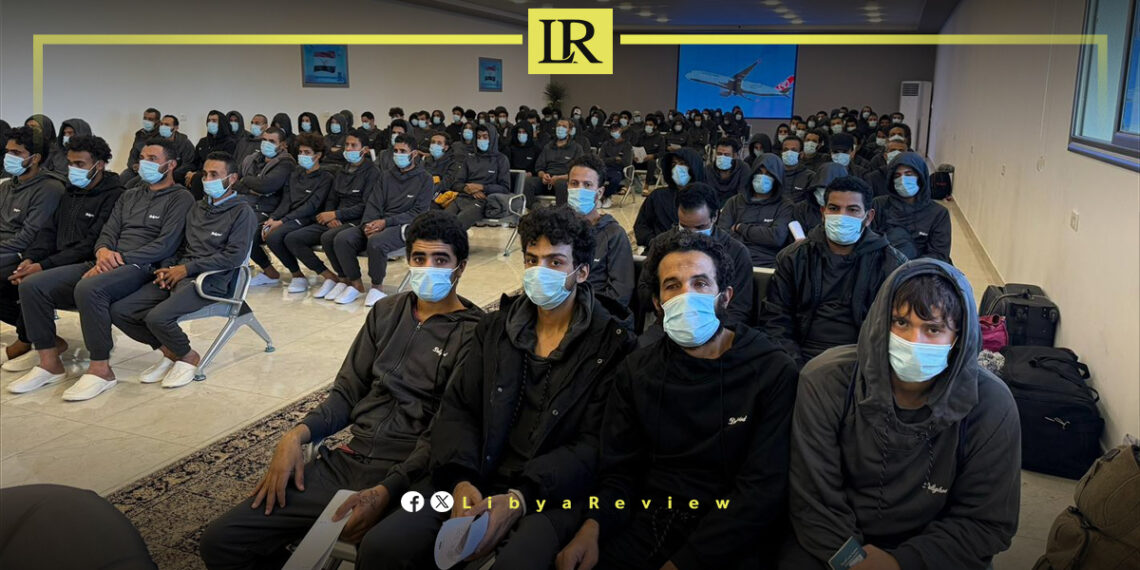The Libyan Anti-Illegal Migration Authority announced on Wednesday the deportation of Egyptian migrants via the Imsaad Land Crossing. In a statement on its social media page, the authority confirmed the migrants’ removal due to violations of entry laws and regulations governing entry to Libyan territory.
While the exact number of deported individuals was not disclosed, the authority indicated that deportation efforts are ongoing.
In a related context, the International Organization for Migration (IOM) reported on July 23 that over 80,000 migrants have been voluntarily repatriated from Libya to their home countries since 2015 through the Voluntary Humanitarian Return program.
The IOM has facilitated the return of migrants from 49 different countries across Africa and Asia, ensuring they receive necessary assistance upon arrival in their home countries. This support includes comprehensive reintegration aid, such as economic, social, and psychosocial assistance to help migrants rebuild their lives.
Libya has been in chaos since a NATO-backed uprising toppled longtime leader Muammar Gaddafi in 2011. The county has for years been split between rival administrations.
Libya’s economy, heavily reliant on oil, has suffered due to the ongoing conflict. The instability has led to fluctuations in oil production and prices, impacting the global oil market and Libya’s economy.
The conflict has led to a significant humanitarian crisis in Libya, with thousands of people killed, and many more displaced. Migrants and refugees using Libya as a transit point to Europe have also faced dire conditions.
The planned elections for December 2021 were delayed due to disagreements over election laws and the eligibility of certain candidates. This delay has raised concerns about the feasibility of a peaceful political transition.
Despite the ceasefire, security remains a significant concern with sporadic fighting and the presence of mercenaries and foreign fighters. The unification of the military and the removal of foreign forces are crucial challenges.


